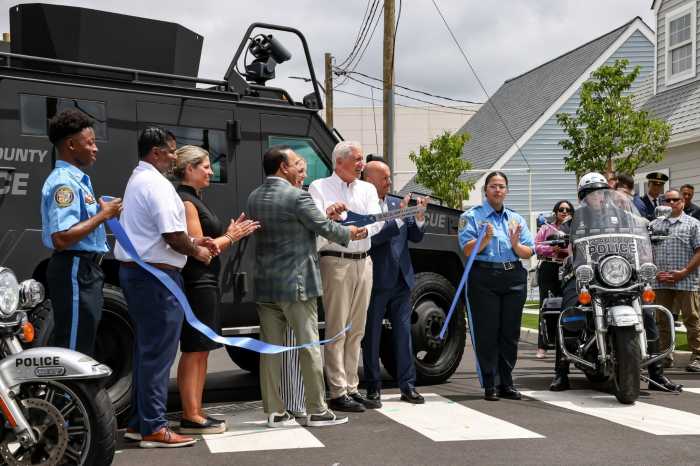Farm stands have become a part of this area’s rich heritage. Many of us fail to realize, save for those who spent most of their lives here, that when we walk throughout Broadway Mall, we’re actually treading upon ground that used to belong to the potato farmers who established this fine community. In order to make ends meet, many farmers used to set up stands along the roadway in the hopes of having passers-by purchase some of their homegrown goods.
When I was a young girl, Dad usually ran errands on Saturday mornings. Although the early part of the day was set aside for cartoon watching, nothing compared to riding shotgun with Dad as he shopped for groceries. After a ride up to Grand Union, Dad made it a point to stop at the farm stand that used to sit along Stewart Avenue, not too far from Dutch Lane Elementary School. Summertime was his favorite time to shop at the stand, as he enjoyed bringing Mom home a bag of tomatoes that were easily the size of softballs.
On occasion, the woman who owned the stand used to give me a small piece of fruit, just because I was “a sweet girl who was helping her daddy.” We would purchase those juicy beefsteaks, as well as a few zucchinis that were large enough to be considered small bats, according to Dad. I just guffawed from my perch in the passenger’s seat as I perused the bag of fresh farm veggies that Mom would be cooking that night.
There have been many times since then that I’ve traveled to my aunt’s home in Westbury and have passed that farm on Stewart Avenue, only to find that the farm stand has long since closed down. While the barn and home are still on site, the farm is no longer in operation. I’ve often heaved a heavy sigh as I drive past, for it’s a part of Americana that’s sadly fading from the landscape.
I made a visit to one of my neighbors this morning, and I found out something rather interesting about that farm stand. My neighbor’s cousin actually owned that farm, and my neighbor used to work at the stand quite often. While I didn’t remember her and remembered her cousin Anna much better, I was amazed that our paths had crossed, many years ago. She mentioned a man who used to sell the tomatoes. He was large, burly, and often commented about the size of the fruit.
Dad used to chat with him whenever he was outside, and I remember the man and the smile. It turns out that “Bull” also owned the farm, and took great joy in sharing his crop with the Hicksville community. Many years ago, the farm had also grown potatoes, but a good part of the land was eventually sold to developer William Levitt. My grandparent’s home in Westbury had also been part of the sale, which I found quite amazing. The tales that she told about Hicksville’s past were so interesting, that I wondered if perhaps it might be worthwhile to teach students about how Hicksville life was, many years ago.
The things that one can learn about our community’s history are amazing, when one takes the time and effort to listen. Winston Churchill said that there’s nothing wrong with change, as long as it’s in the right direction. While our neighborhoods have changed quite a bit over the years, the importance of remembering what made our community what it is today is a vital lesson for all.  By remembering where we came from and how our neighborhoods came to be, we can all develop a real appreciation for this great town, which is rich in history and culture, not just from today, but from our wonderful past.
By remembering where we came from and how our neighborhoods came to be, we can all develop a real appreciation for this great town, which is rich in history and culture, not just from today, but from our wonderful past.


































